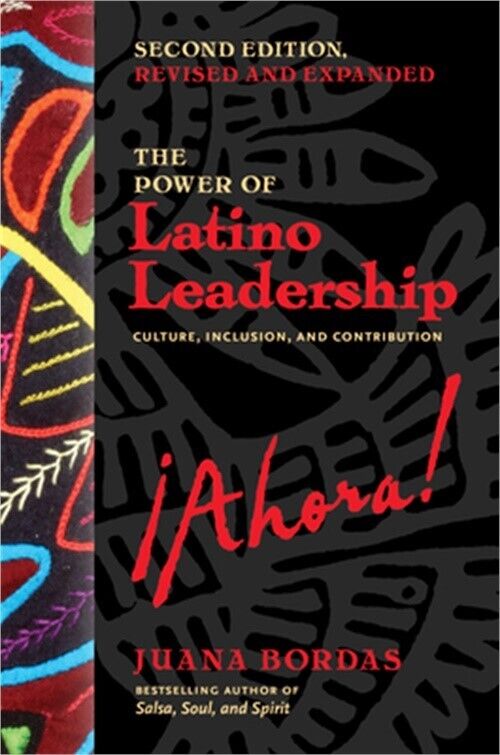
Training Overview
Welcome to the LIDERAMOS Latino Leadership Model Training Series! This three-part program offers a comprehensive introduction to understanding and implementing our unique model. You’ll explore the five core elements, the critical role of culture in leadership, effective Latino-centered adult learning principles, and practical strategies for community-driven program design.
This foundational training equips you to build impactful leadership initiatives. Recognizing that leadership development is a lifelong journey, LIDERAMOS advocates for a continuum of learning. This series focuses on essential core elements, paving the way for future advanced training and alumni engagement to support ongoing growth.
The following outline details our Latino Leadership Program Core Elements Train the Trainer overview. These core elements are the key considerations LIDERAMOS recommends for Local Leadership Programs (LLPs) as they develop curriculums rooted in their specific community context. Remember, program content should always be adapted to the unique needs, educational levels, resources, and budget of the community and participants you serve.
Upon registration, you will receive detailed training agreements and outlines to help you prepare for this enriching learning experience.
Session 1
Session 1 lays the groundwork for understanding and implementing the LIDERAMOS Latino Leadership Program model. Part one, “Nurturing Community,” delves into the crucial aspects of building robust and supportive learning environments deeply rooted in Latino cultural values. Following this, “Overall Context of the LLP Model” provides a comprehensive introduction to the foundational principles, overarching goals, and adaptable nature of the LIDERAMOS framework. Finally, Part three, “Developing a Critical Reflexivity,” guides participants in examining their own positionality and inherent biases, fostering a continuous practice of critical self-reflection within a relevant cultural context.
Session 2
Session 2 focuses on the practicalities of building and facilitating a culturally relevant Latino Leadership Program. Part one, “Creating the Foundation of Your LLP,” outlines the essential steps and considerations for establishing a successful initiative and introduces Core Element 1: “Self Development and Awareness,” emphasizing its importance in Latino leadership. Part two, “Holding Space for the Multiplicity of Being: Approaches & Considerations,” explores culturally relevant methodologies for creating inclusive and affirming learning environments and underscores the necessity of “Racial Equity & Healing: A Must Skill Set for Latino Leaders.” Finally, Part three, “Deconstructing Mainstream Leadership,” analyzes dominant leadership paradigms to identify culturally relevant adaptations and alternatives, and introduces Core Element 2: “Mainstream Leadership,” focusing on navigating and influencing mainstream systems from a Latino perspective.
Session 3
Session 3 delves into the historical context and practical tools for effective Latino leadership and community empowerment. Part one, “Recovering Latino Histories: Local, National, Hemispheric, Global,” explores the rich and often overlooked histories of Latino communities across diverse geographical scales and introduces Core Element 3: “Latino History, Culture, & History Practices,” emphasizing its foundational role in shaping Latino leadership. Part two, “Tools to Strengthen Latino Agency,” examines strategies and frameworks for empowering Latino communities and fostering collective action, and introduces Core Element 4: “Public Policy, Civic Engagement and Social Change,” focusing on engaging in policy processes and driving social change within Latino communities. Finally, Part three, “Skill Building – Remedios for Transformation,” provides practical skills development in key leadership areas and introduces Core Element 5: “Skill Development: Networking, Team Building and Influence Strategies,” highlighting culturally relevant approaches to collaboration and influence.
Session 4 (Optional)
ession 4 offers an optional, collaborative workshop focused on generating Latino Leadership Program and curriculum ideas. This session provides a dedicated space for participants to brainstorm, develop, and refine their own program initiatives, effectively applying the knowledge and insights gained from the LIDERAMOS Core Elements.
Required Reading
Juana Bordas leadership scholarship is a compass and guide.
“The Power of Latino Leadership: Culture, Inclusion, and Contribution” by Juana Bordas is a groundbreaking book that delves into the unique leadership styles and cultural values prevalent within the Latino community in the United States.
Bordas argues that as the Latino population continues to grow and exert increasing influence, understanding their distinct approach to leadership is crucial not only for Latinos themselves but for leaders of all backgrounds seeking to navigate a diverse and multicultural society.
The book outlines ten core principles that characterize Latino leadership. Through compelling anecdotes, interviews with distinguished Latino leaders, and traditional dichos (sayings), Bordas illustrates these principles in action, showcasing the rich tapestry of Latino leadership across various fields.
The book challenges traditional Eurocentric leadership models and presents a compelling case for how the strengths inherent in Latino culture – its deep roots, strong values, and multifaceted heritage – can offer fresh perspectives and revitalize leadership development for the 21st century’s multicultural and global landscape.
In essence, “The Power of Latino Leadership” is a vital resource for anyone seeking to understand, engage with, and learn from the dynamic and increasingly influential Latino community. It provides valuable insights into a powerful leadership model that emphasizes people, community, and cultural relevance, offering lessons applicable to leaders of all ethnicities and sectors. The updated second edition also includes a chapter on intergenerational leadership, recognizing the growing influence of Millennial and Gen Z Latinos.

